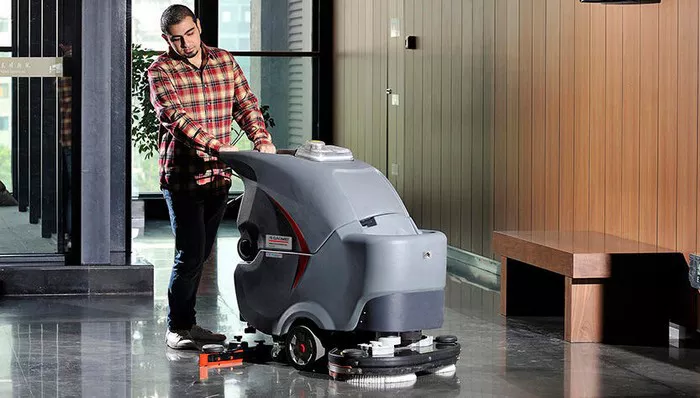In the world of cleaning and dental hygiene, choosing the right materials for cleaning tools, such as scrubbers, is essential for achieving effective results. Scrubbers are used to clean various surfaces, including dental tools and equipment, floors, and countertops. The choice of material impacts not only the effectiveness of the cleaning process but also the durability and safety of the scrubber.
This article delves into the best materials for scrubbers, exploring their properties, advantages, and ideal uses. Whether you are looking to clean dental instruments or maintain hygiene in other environments, understanding the right material for your scrubber is crucial for optimal performance.
Key Characteristics of Scrubber Materials
Durability
The material of a scrubber must be durable enough to withstand repeated use without breaking down. Durability ensures that the scrubber maintains its effectiveness over time.
Abrasiveness
Different materials offer varying levels of abrasiveness. A scrubber needs to have the right level of abrasiveness to clean effectively without damaging the surface.
Hygiene
Hygiene is paramount, especially in dental settings. The material should resist bacteria and mold growth to ensure a clean and sanitary environment.
Compatibility
The scrubber material should be compatible with the surfaces being cleaned. For instance, materials that are too abrasive might damage delicate surfaces.
Common Scrubber Materials and Their Uses
1. Nylon
Properties: Nylon is a synthetic polymer known for its strength and flexibility. It is resistant to abrasion and can withstand high temperatures and chemicals.
Advantages:
Durable and Long-Lasting: Nylon scrubbers are known for their durability and resistance to wear and tear.
Chemical Resistance: They are resistant to many cleaning agents, making them versatile for various cleaning tasks.
Non-Scratch: Nylon scrubbers are generally non-scratch, making them suitable for delicate surfaces.
Ideal Uses: Nylon scrubbers are often used for cleaning kitchen surfaces, dental instruments, and general-purpose scrubbing tasks. They are also used in industrial settings for cleaning machinery and equipment.
2. Stainless Steel
Properties: Stainless steel is a metal alloy known for its resistance to rust, corrosion, and staining. It is highly durable and can withstand harsh cleaning conditions.
Advantages:
Highly Durable: Stainless steel scrubbers are robust and have a long lifespan.
Corrosion-Resistant: They do not rust or corrode, making them suitable for use in wet environments.
Effective for Heavy-Duty Cleaning: Stainless steel is ideal for scrubbing tough grime and debris.
Ideal Uses: Stainless steel scrubbers are used in industrial cleaning, heavy-duty scrubbing of pots and pans, and cleaning surfaces that require a strong abrasive action. They are less suitable for delicate surfaces due to their abrasiveness.
3. Natural Fiber
Properties: Natural fibers, such as coconut husk or sisal, are biodegradable and derived from plant sources. They are generally less abrasive than synthetic options.
Advantages:
Eco-Friendly: Natural fiber scrubbers are environmentally friendly and biodegradable.
Gentle on Surfaces: They offer a gentler scrubbing action, reducing the risk of scratching delicate surfaces.
Effective for Organic Debris: Natural fibers are effective at removing organic matter.
Ideal Uses: Natural fiber scrubbers are used for cleaning delicate surfaces, such as glass and ceramics, and in eco-friendly cleaning solutions. They are also used in dental settings for cleaning instruments where a softer touch is needed.
4. Foam
Properties: Foam scrubbers are made from synthetic foams like polyurethane. They are lightweight and offer a soft, cushioned cleaning action.
Advantages:
Gentle Cleaning: Foam scrubbers provide a gentle cleaning action, making them suitable for sensitive surfaces.
Lightweight: They are easy to handle and use, reducing user fatigue.
Absorbent: Foam can absorb cleaning solutions and distribute them evenly.
Ideal Uses: Foam scrubbers are used for cleaning delicate surfaces, such as electronics, sensitive dental tools, and countertops. They are also used in applications where a gentle touch is required.
5. Microfiber
Properties: Microfiber is a synthetic material composed of very fine fibers. It is known for its exceptional cleaning ability and soft texture.
Advantages:
- High Absorbency: Microfiber can hold a significant amount of liquid, making it effective for mopping and wiping.
Non-Abrasive: It is gentle on surfaces, reducing the risk of scratches.
Effective Cleaning: Microfiber can capture and hold dust, dirt, and bacteria more effectively than traditional materials.
Ideal Uses: Microfiber scrubbers are ideal for a wide range of cleaning tasks, including cleaning dental instruments, countertops, and floors. They are effective for both wet and dry cleaning and are commonly used in both domestic and professional settings.
see also: How a Power Scrubber Works
Choosing the Right Scrubber Material
Consider the Cleaning Task
The choice of material should be based on the cleaning task. For heavy-duty cleaning, materials like stainless steel or nylon might be more suitable. For delicate or sensitive surfaces, natural fiber or microfiber options may be better.
Assess Surface Compatibility
Consider the surface you will be cleaning. Ensure the scrubber material will not damage or scratch the surface. For example, use non-abrasive materials on delicate surfaces and more robust materials for tougher cleaning tasks.
Evaluate Hygiene Requirements
In environments where hygiene is critical, such as dental settings, choose materials that resist bacteria and are easy to clean. Materials like microfiber and nylon are often preferred for their hygienic properties.
Think About Environmental Impact
If environmental impact is a concern, natural fiber scrubbers offer a biodegradable option. Consider the sustainability of the materials used in your scrubber.
Conclusion
Choosing the best material for a scrubber depends on various factors, including durability, abrasiveness, hygiene, and compatibility with the surfaces being cleaned. Materials such as nylon, stainless steel, natural fiber, foam, and microfiber each offer unique benefits and are suited for different cleaning tasks.
By understanding the properties and advantages of each material, you can select the most appropriate scrubber for your needs. Whether you are cleaning dental instruments or maintaining hygiene in other environments, the right scrubber material ensures effective cleaning and contributes to a healthier and cleaner space.

